2021 Scholarship Awardees
Graduate Scholarship Awardees
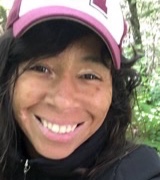 Victoria Bomberry
Victoria BomberryWestern |
Victoria Bomberry is Mohawk Bear clan from Six Nations of the Grand River. Victoria earned an Hon. BSc. in Geography and Environmental Sciences at McMaster University and is entering her 2nd year MA Geography & Environment studies at Western under the supervision of Dr. Chantelle Richmond. Victoria’s research examines the influence of housing on the decisions of Indigenous Peoples to pursue and complete post-secondary studies. In her MA research, Victoria will examine the housing experiences and needs of Indigenous students at Western. |
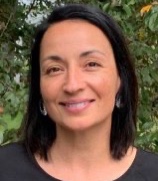 Jodi John
Jodi JohnQueen's |
Jodi John is Mohawk, bear clan from Tyendinaga Mohawk Territory where she has been living and working as a Registered Dietitian and Certified Diabetes Educator for nearly 10 years. She has a Bachelor of Science in Biology/Psychology from Trent University as well as a Bachelor of Science in Nutrition from McGill University. She is currently pursuing her Master of Arts in Geography at Queen's University. Her research focuses on exploring Indigenous values in the context of relationship building with healthcare providers. |
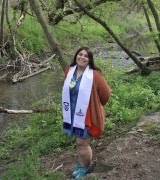 Serena Mendizabal
Serena MendizabalWestern |
Serena Mendizabal is Gayogo̱hó:nǫˀ-Panameños Wolf clan woman from the Six Nations of the Grand River Territory, Haldimand Tract 1784. Serena is a graduate from Western University with a Bachelor of Arts double major in Media, Information, and Technoculture & Indigenous studies. Serena is currently continuing her studies at Western University in a Masters of Geography and Environment with a focus in Indigenous Health and Environment. Her research background stems from her own work in Six Nations where she grew an interest in Indigenous governance, autonomy, energy, and development. Throughout university, Serena has worked on numerous projects such as the World Indigenous Peoples’ Conference on Education, SNGRDC Youth Solar Energy Program, the Six Nations Community Plan, Co-Founder of the Western University Student Energy Chapter, a 2020 Leaders Fellowship participant, and is currently a Vice-Chair for SevenGen and sits on Ogwadeni:deo Six Nations Child Welfare Commission. For the past two and a half years, Serena has participated in Indigenous environmental health research with Dr. Diana Lewis and the Neqotkuk. Serena is currently working with the Neqotkuk to explore the relationship with their health and the environment around them, specifically focusing on if energy autonomy is a determinant of health and free, prior, and informed consent. Serena is passionate about community driven projects and research and hopes to pursue a future working in environmental justice, for Indigenous sovereignty and her people. |
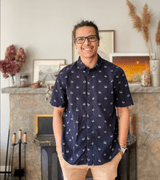 Kieran Peltier
Kieran PeltierNipissing |
Aanii, hello! My name is Kieran Peltier. My Anishnabek name is Waabshki M’koonhs (Little White Bear) and I am part of the deer clan. I am 27 years old. I proudly call Wiikwemkoong Unceded Territory home, but I am currently a resident of North Bay, Ontario. I am son to Maxine and Gerard Peltier; brother to Jesse, Bo, and Evan Peltier; and a Grandson of Rita and Eric Corbiere and Alberta and Sara Peltier. I am currently a Research Assistant with the Groups for Youth Development Laboratory, a Physical Wellness Practitioner at the North Bay Indigenous Hub, and I am the Co-Founder and Co-Executive Director of 5 Feathers, wherein we delivery hockey and lacrosse programming. My educational background includes: Ontario College Diploma in Strength and Sports Conditioning, Canadore College; Bachelor of Science Degree in Sports Strength and Conditioning, Limerick Institute of Technology; Bachelor of Physical and Health Education Degree, Nipissing University (Graduating 2021); and Master of Science in Kinesiology Degree, Nipissing University (2021 Graduate Candidate). I have just been accepted into the PhD in Education program at Nipissing University. In research, my interest is in Indigenous youth development through sport and physical activity. I have a particular interest in examining Indigenous education and youth development, specifically in exploring Indigenous youth experiences in a sport and physical activity context. As such, my research involves wholistic work appealing to sport, physical activity, exercise, education, culture, wholistic health, life skills, and positive development. Through my research I hope to enhance the cultural and educational experiences for Indigenous youth in a sport and physical activity context. |
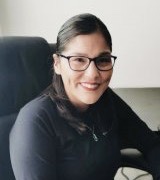 Molly Peters
Molly PetersTrent |
Molly Jean Peters is a proud Mi’kmaq woman from Paqtnkek Mi’kmaw Nation, Mi’kma’ki (NS). She graduated from Trent University with a B.A. degree in Indigenous Studies and is a currently in the Masters of Sustainability Studies program at Trent University. She has previously worked as the Aboriginal Student Advisor for STFX University. In her community Molly held several positions including the NADACA Field Worker (addictions), the Community Facilitator - PATHway’s Project, the Community Facilitator - Preventing and Responding to Sexual Violence Project and an elected Band Councillor for the Paqtnkek Mi’kmaw Nation which sparked and deepened her passion for community development and social justice activism. She has also volunteered hundreds of hours to her community at cultural and community functions, on committees, facilitating workshops, and in crises response and resource sharing. Through her community development efforts across the years, especially through her work with the Paqtnkek SVPR Project and on subsequent projects Advisory Committees, Molly has contributed to advancing the sexual violence prevention and response efforts in Paqtnkek, through an Indigenous community perspective. Her graduate research will further this valuable community work by developing culturally relevant, culturally safe and sex-positive sexual consent educational resources for community members, for all ages and genders. |
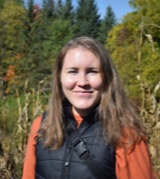 Sarina Perchak
Sarina PerchakGuelph |
Sarina Perchak is a person of mixed ancestry (Métis, Ukrainian and Irish) originally from Treaty 1 Territory, currently residing in the Haldimand Tract in Kitchener, Ontario. She is a daughter, an auntie, a sister, a Land-based educator, a weaver, an activist and a life-long learner. Sarina is passionate about the wellbeing of all of her relations; the people, animals, Lands, and waters all around her. Sarina will be conducting research for a Master’s degree at the University of Guelph beginning in Fall 2021 related to the processes of creating and maintaining Indigenous places in an urban context. She hopes to be able to directly serve her community through better understanding and making space for cultural identity exploration and solidification for Indigenous folks that have been disconnected from the Land and their ancestral connections. As an urban Indigenous person herself, these processes are very close to her heart and she understands this research and the actions that follow it to be part of her responsibility to Creation. |
Undergraduate Awardees
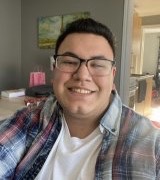 Riley Kennedy
Riley KennedyWestern |
Riley Kennedy is a Haudenosaunee student from Oneida Nation of the Thames studying at Western University. Riley is going into his fourth year of a honours double major in Indigenous studies and community development. Riley is involved in various research activities in the fields of health equity, Indigenous health, and, 2SLGBTQ+ health. Riley contributes to student life through various leadership experiences including Western University Senate and Western University Students’ Council. Riley is involved in the local London and Southwestern Ontario community through Nshwaasnangong Child Care and Family Centre, Rainbow Optimist Club of Southwestern Ontario, London-Middlesex Local Immigration Partnership, and, Brescia University College. Riley is looking forward to pursuing graduate studies in public health and health sciences. |
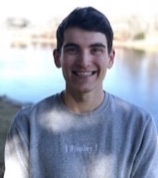 Félix Larocque
Félix LarocqueOttawa |
Félix Larocque is a member of the Mattawa/North Bay Algonquin First Nation. His spirit name is “Mino-zoongde’e: Kind Gentle Heart”. Enrolled at the University of Ottawa, he is a History and French undergraduate student in the Faculty of Arts. His long-term goal is to become a high school teacher. A very active person, he adores sports as well as school. He has represented his band at the “North American Indigenous Games”. He is also the Regional Mentor for Northern Ontario students at the University of Ottawa, whose mandate is to support newly enrolled students with their transition to university. Winner of the Lieutenant Governor’s Award for his exceptional volunteer work, he acted as mentor for 5 years at the Niigan Mosewak native awareness camp and as minister of Native affairs in his high school student council. His Franco-Ontarian identity is intimately linked to his Aboriginal identity; one cannot be separated from the other. Involved in awareness and reconciliation initiatives since early childhood, he has given multiple province wide workshops to youth. He is convinced that he can contribute to his surroundings and community by setting an example in his efforts towards Truth and Reconciliation. |
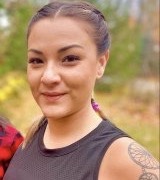 Alysha Parks
Alysha ParksTrent |
Alysha Parks is an Anishinaabekwe who grew up in a remote town called Red Lake, Ontario. Her tradtional territory is Curve Lake First Nation, however, also has strong ancestral ties to the Trout Lake Conservation Reserve of Treaty 3, where she traditionally harvests the Anishinaabe mnoomin with her family, spending much of her personal time on the land connection to her Indigenous culture and traditions. She is currently entering her 4th year in the Indigenous Studies program at Trent University. Her education goals consist of continuing her education to pursue a Law degree at Queens University. My career goal would be to work in remote First Nation Communities for Indigenous health rights. Indigenous people suffer tremendously from lack of clean water, running water, healthy food options, affordable food options, and other determinants of health resulting in poor health outcomes in First Nation communities. She would use her Law degree to help fight for adequate health funding and resources for Indigenous people in these remote First Nation communities. |


